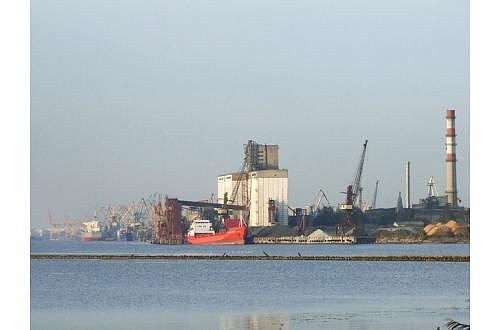Fishing – largest exporting industry with 95% export
Photo: Stock.XCHNG
Fishing industry in brief:
• 106 fishing companies operated in Latvia in 2011, including 22 producing canned fish and 84 processing frozen fish. Around 4 000 persons were employed in the fishing industry in 2011;
• The industry turns over LVL 150 million per year and exports 95% of its production;
• Demand for canned fish increased to a deficit on export markets in 2011. Overall, export volumes increased 40%;
• Sprats in oil were the most popular product with 74% of total export.
• The highest demand for Latvian production is in Russia, Ukraine, Kazakhstan, Uzbekistan, Azerbaijan, Belarus, the United States, the European Union and Scandinavia.
• The industry’s export volume amounted to 90,200 tonnes in the first nine months of 2012, similarly to the respective period in 2011. Its structure, however, experienced considerable changes. Due to various circumstances, not dependant on Latvia, Latvian ships have stopped fishing in oceanic coastal waters within the framework of the European Union’s fisheries agreements, suffering a 11% decrease in production, mainly regarding frozen fish export.
Sprats dominate
• Fortunately, the said decrease is compensated by canned fish export, which, compared to the first nine months of 2011, increased 19% in the corresponding period of 2012. Sprats were the most dominant product in the segment of canned fish and sea products with a 74% export share, followed by caviar substitutes, molluscs and crustaceans – 11%, herring – 6%, mackerels – 5%, ready-made seafood meals – 3%, canned salmon – 1%.
• The industry’s foreign trade balance is constantly positive. Compared to 2011, it increased 21% in 2012.
• In addition to the industry’s overall figures, the impact of fishing fleet balancing measures is a positive factor, resulting in an increase in the average catch – from 632 tonnes to 692 tonnes – and the income of those working in the industry.
Fishing quotas increase
• Baltic Sea and Gulf of Riga fishing quotas for 2013 were confirmed in Luxembourg in October 2012, fully corresponding to Latvia’s stance. Sprat quotas will increase 11% this year. Baltic herring quotas will increase 15% in the Baltic Sea and remain unchanged in the Gulf of Riga. Salmon and cod quotas will decrease 9% in the eastern part and 5,9% in the western part. Nevertheless, these decreases will not affect Latvian fishermen, who are not active in salmon fishing, and the reduced cod quotas will be compensated by the previously unused quotas transferred from 2012.
Goal – to double export
• Fishing industry experts point out that the industry’s goal is to double its annual turnover during the next seven years – from current LVL 150 million to LVL 300 million. Fish product export volumes are expected to grow 100% by 2020. By then, all Western European markets will be conquered and Latvia will have the leading position on Europe’s fish processing market. LVL 18 to 20 million worth of tax revenue will be channelled to Latvia’s budget, compared to current LVL 12 million.
• It will be possible to accomplish this by establishing closer cooperation among fishermen, fish processing companies and the state. Support from the European Fisheries Fund – EUR 100 million (LVL 70 million) within the next planning period – will also be used for such purposes.
Most important industry developments:
1. One of the most positive factors of 2012 is an increase in demand on export markets – up to a deficit. Overall, export volumes increased 40% in 2012, compared to 2011. Demand for fish products with value-added – canned fish, sprats, seafood salads – increased particularly.
2. In 2013 and 2014, the industry will have to focus on the establishment of infrastructure in the largest fishing ports – Ventspils and Liepaja, ensuring efficient and quality service to foreign fishing vessels. It will also be necessary to build modern pumps and storage terminals. The European Fisheries Fund’s allocations will be channelled for these purposes, active state and municipal involvement will be required as well.
3. In the future, the industry will have a good chance of becoming a production base for Western European markets.
Fish and other sea products caught (thousands tonnes)
| 2007
| 2008
| 2009
| 2010
| 2011
|
Fish, molluscs and crustaceans
| 156,0
| 158,5
| 163,7
| 165,4
| 155,9
|
Fish
| 153,8
| 156,9
| 162,2
| 164,4
| 155,4
|
..sprats
| 60,5
| 57,3
| 49,5
| 45,9
| 33,4
|
..Baltic herring
| 22,4
| 22,5
| 21,6
| 21,4
| 22,8
|
..cods
| 4,3
| 4,0
| 4,6
| 5,2
| 4,9
|
..other
| 66,5
| 73,1
| 86,5
| 91,9
| 94,4
|
Molluscs and crustaceans
| 2,3
| 1,6
| 1,5
| 1,0
| 0,4
|
Source: Union of Latvian Fish Processing Industry
Five largest fishing and fish processing companies in terms of net turnover in 2011
Company
| Specialisation
| Turnover 2011, millions, EUR
| Turnover 2010, millions, EUR
| Turnover changes 2011 vs 2010, %
| Profit 2011, millions, EUR
| Number of employees, 2011*
|
Verģi Ltd
| fishing
| 5,37
| 4,12
| 30
| 0,643
| 89
|
Baltreids Ltd
| fishing
| 5,32
| 4,42
| 20
| 0,420
| 23
|
Gamma-A Ltd
| fish processing
| 27,90
| 21,22
| 31
| 1,62
| 609
|
Karavela Ltd
| fish processing
| 15,06
| 10,67
| 41
| 0,250
| 202
|
JSC Brīvais vilnis
| fish processing
| 12,15
| 10,14
| 19
| 0,245
| 408
|
* Average number of employees. Source: Firmas.lv
Useful links
Ministry of Agriculture
Central Statistical Bureau
Latvian Federation of Food Enterprises
Union of Latvian Fish Processing Industry
Agricultural Data Centre
Food and Veterinary Service





